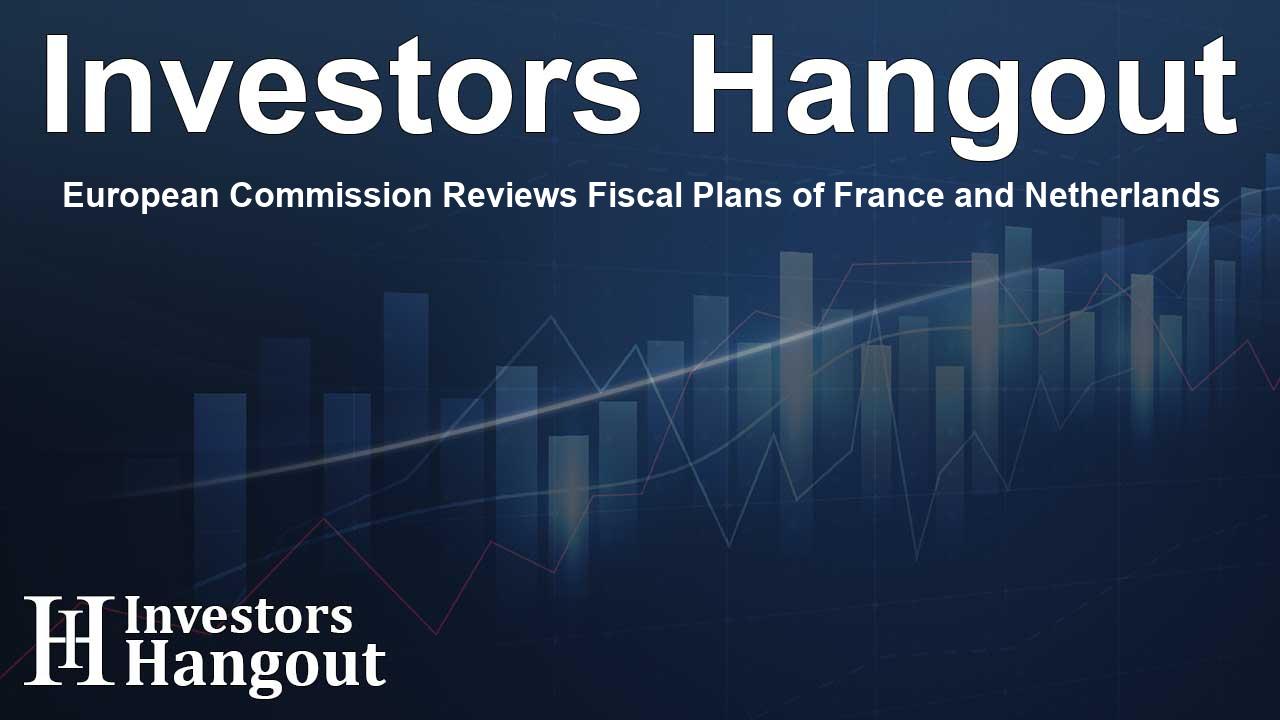European Commission Reviews Fiscal Plans of France and Netherlands

European Fiscal Policies Under Scrutiny
As the economic landscape within Europe shifts, attention has turned towards the fiscal plans of member nations. Recent evaluations highlight France's ambitious budgetary goals for 2025 and the diverging paths taken by other Eurozone countries, notably the Netherlands. The European Commission's recent announcement sheds light on these varying approaches, revealing a deeper narrative about economic management across the continent.
France's Commitment to Fiscal Responsibility
Amid significant scrutiny regarding its public finances, France aims to align with EU fiscal frameworks through its draft budget for 2025. The plan outlines a projected budget deficit reduction from 6.1% of GDP this year to 4% in the upcoming year—ultimately striving to fall below the EU-mandated threshold of 3% by 2029. The French government, now under the leadership of Michel Barnier, faces the daunting task of navigating these fiscal ambitions in a politically fragmented environment.
Challenges Ahead for France
The stakes are high for Barnier's administration. As the government grapples with a hung parliament resulting from recent elections, the push for austerity poses significant challenges. Should the proposal face rejection in parliament, it could potentially jeopardize the government’s stability, raising questions about the future of France's fiscal consolidation plans. Additionally, the growing premium required by investors for holding French bonds over those of Germany indicates an underlying unease about the country's economic health.
The Netherlands: A Departure from Fiscal Norms
In a surprising turn of events, the European Commission has labeled the Netherlands—a nation often seen as a benchmark for fiscal prudence—as not fully compliant with new EU fiscal rules. The Dutch government's plans to increase spending by an average of 4.2% annually until 2028 exceed the Commission’s recommendation of a 3.2% increase, which raises alarms about their fiscal trajectory.
Commission's Assessment on Dutch Spending
The Commission's assessment reveals that the net expenditure proposed by the Netherlands would surpass agreed limits, prompting concerns about their commitment to sustainable fiscal policies. This acknowledgement marks a significant shift in perceptions regarding the Netherlands, typically heralded for its economic discipline.
Concerns Over Broader European Economic Stability
Amidst the assessments of individual nations, broader economic uncertainties pose challenges for all of Europe. Issues such as political instability in Germany, potential trade tariffs stemming from U.S. policies, and diplomatic tensions with China add layers of complexity to the economic landscape. These factors contribute to a general unease among market watchers, exacerbating fears regarding potential recessions and economic stagnation.
Looking Ahead: EU Public Investment Trends
Despite these challenges, the Commission offers a glimmer of optimism, predicting an increase in EU public investment due to the ongoing funds recovery efforts. Public investment within the euro area is expected to rise from 3.4% of GDP in 2024 to 3.5% in 2025, which aims to counteract the austerity measures elsewhere and prevent a repeat of past mistakes where fiscal consolidations adversely impacted growth.
Frequently Asked Questions
1. What is the main goal of France's draft budget for 2025?
The main goal is to reduce the budget deficit from 6.1% of GDP to below the EU limit of 3% by 2029.
2. How is the European Commission involved in national budgets?
The Commission evaluates draft budgets and provides recommendations to ensure compliance with EU fiscal rules.
3. What issues are currently affecting the Netherlands' fiscal plans?
The Netherlands is facing criticism for planning to increase spending too much compared to the recommendations provided by the Commission.
4. What are the broader economic concerns affecting Europe?
Concerns include political instability in Germany, potential trade tariffs from the U.S., and trade tensions with China.
5. Will public investment in the EU increase?
Yes, public investment is expected to increase from 3.4% to 3.5% of GDP from 2024 to 2025 due to EU recovery fund spending.
About Investors Hangout
Investors Hangout is a leading online stock forum for financial discussion and learning, offering a wide range of free tools and resources. It draws in traders of all levels, who exchange market knowledge, investigate trading tactics, and keep an eye on industry developments in real time. Featuring financial articles, stock message boards, quotes, charts, company profiles, and live news updates. Through cooperative learning and a wealth of informational resources, it helps users from novices creating their first portfolios to experts honing their techniques. Join Investors Hangout today: https://investorshangout.com/
Disclaimer: The content of this article is solely for general informational purposes only; it does not represent legal, financial, or investment advice. Investors Hangout does not offer financial advice; the author is not a licensed financial advisor. Consult a qualified advisor before making any financial or investment decisions based on this article. The author's interpretation of publicly available data shapes the opinions presented here; as a result, they should not be taken as advice to purchase, sell, or hold any securities mentioned or any other investments. The author does not guarantee the accuracy, completeness, or timeliness of any material, providing it "as is." Information and market conditions may change; past performance is not indicative of future outcomes. If any of the material offered here is inaccurate, please contact us for corrections.